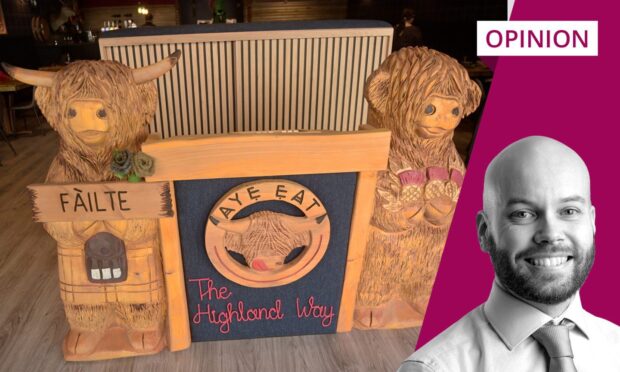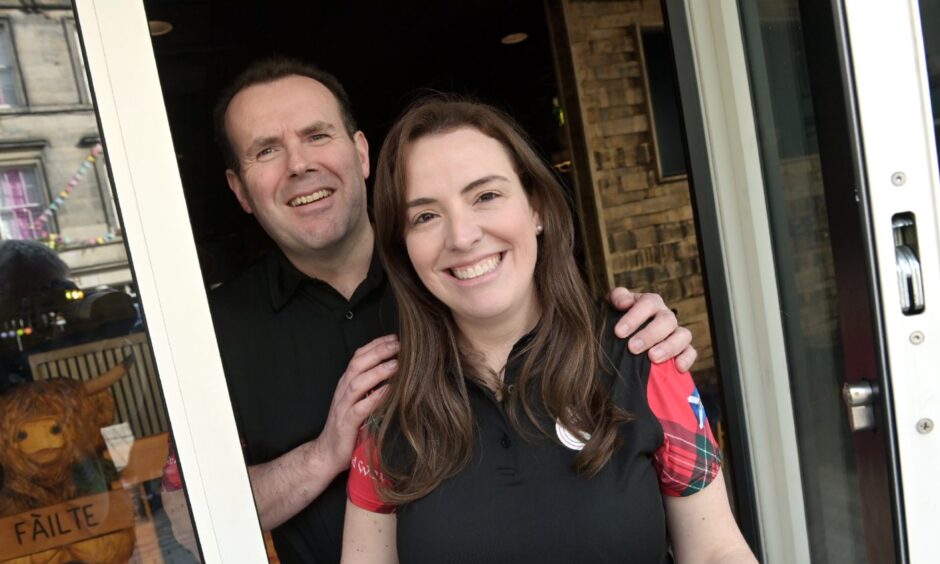There’s a very good reason why large companies, celebrities and famous athletes pay top dollar for someone to handle their PR.
The internet is an unforgiving place.
And in the digital age, a single misstep can have massive consequences.
Last weekend, Inverness High Street restaurant Aye Eat was the recipient of a bad review from an American TikTok influencer called Kalani Ghost Hunter.
Whether you’ve heard of him or not – and plenty of people have been desperate to say they haven’t – he’s got a very large online audience of more than three million followers on TikTok alone.
Kalani criticised how long he’d been kept waiting, the value for money and said the burger he was given was “nothing to write home about”, rating it 3/10.
It was undoubtedly critical but as reviews go, we’ve heard a lot worse.
Kalani’s video got a bit of traction locally, with some jumping in to say they’d had a bad experience too.
It prompted Roberta Shayer, who co-owns the business with her husband David, to jump onto Kalani’s page to try to set the record straight.
And in doing so, it gave us a perfect illustration of what not to do when responding to criticism online.
Inverness responds forcefully to restaurant biting back
The Aye Eat Facebook page has been no stranger to replying to critics on their own page, usually when someone questions a price.
And we’ve all probably seen examples of business owners chirping back at an OTT review on TripAdvisor and ending up winning plaudits for doing so.
But this was a different kettle of fish.
On one side you had an influencer who rarely gives out bad reviews, who’d already sang the praises of several other local places and clearly has a lot of fans.
On the other you had a relative newcomer to the city’s restaurant scene. And one that seems to have already irked a good chunk of the Inverness public.
Delivering their own scathing review of Kalani and nit-picking his critique might’ve got a few hand-clapping emojis in the family group chat but on Inverness social pages it opened the door to a tsunami of stick.
Observing the claim and counter-claim that followed was like watching a car crash in slow motion.
Social media thrives on viral moments.
A poor response can spread like wildfire, turning a local issue into a far bigger controversy than it ever should have been.
For Aye Eat, the weekend started with someone saying £6 was too much for a side of chips.
It ended with them deleting their own Facebook page and closing their doors to recover.
So what should Aye Eat have done instead?
A bad review can sting.
Restaurants and bars place a high level of importance on their scores online because so many people use those to determine whether or not they’re worth visiting.
But a poor response to a review can do far more damage than the review itself.
Instead of bickering over Kalani’s comments and trying to call his integrity into question, they needed to respond in a much more professional and courteous tone.
Apologising that it didn’t meet his expectations and inviting him back for a second visit seemed like a no-brainer.
And now, after hiring Heartland PR to step in to mop the situation up, that’s effectively what they’ve done.
It might stem the tide but plenty of people are saying it’s too little, too late.
A significant amount of damage has already been done and coming back from that in the unforgiving world of hospitality could prove tricky.
Stuart Findlay lives in Inverness and works as a journalist for the Press and Journal.
For more Inverness news and updates visit our dedicated page and join our local Facebook group.




Conversation